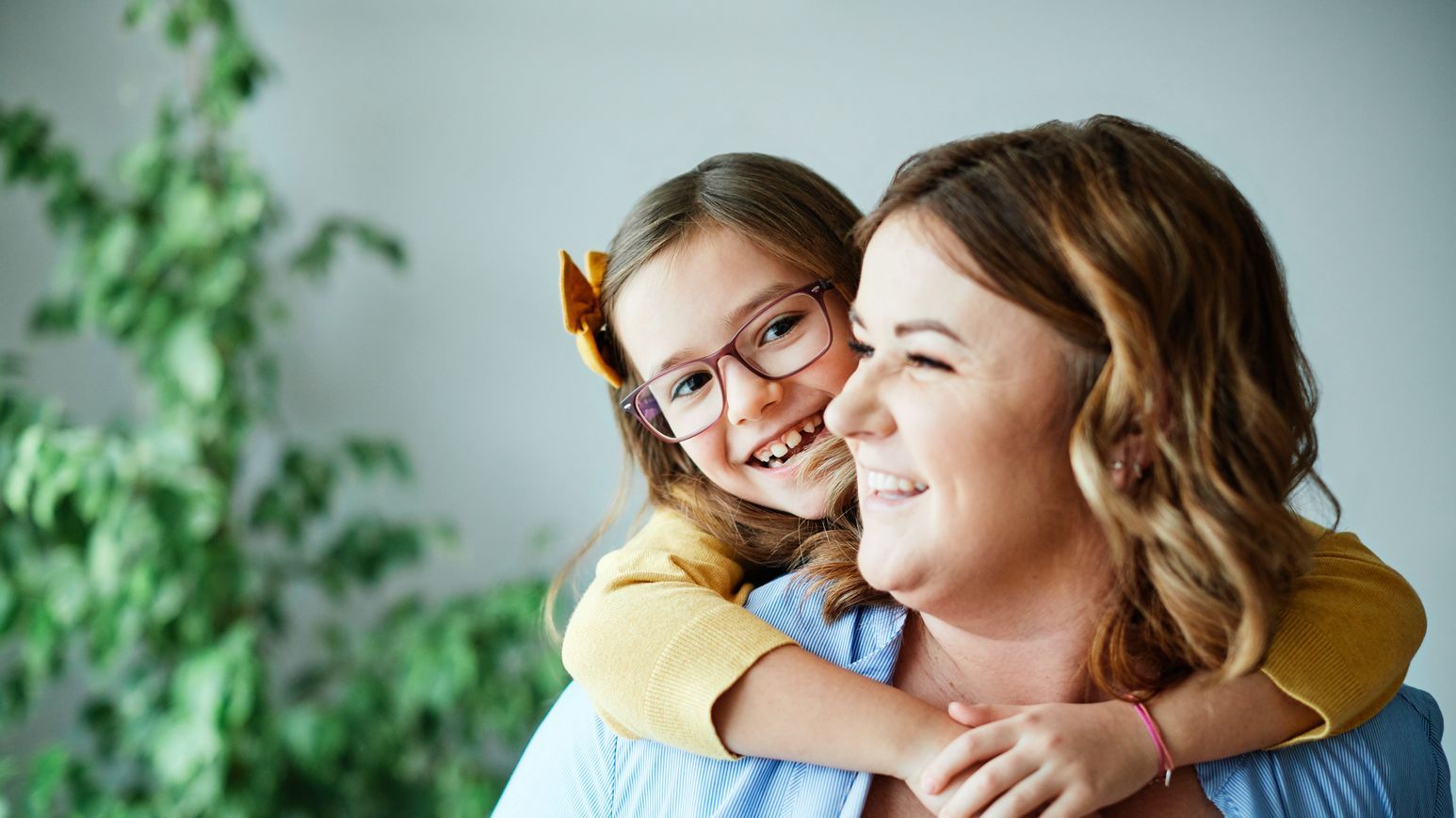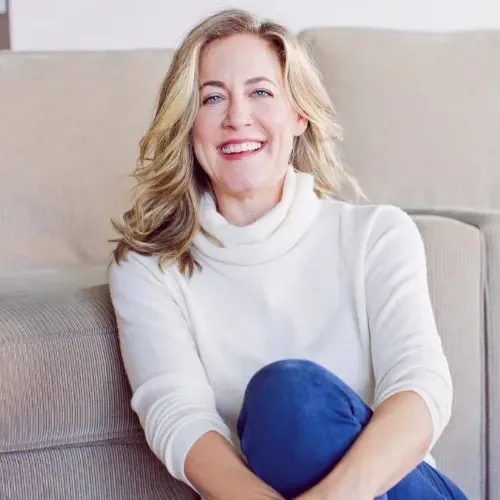Destigmatizing Parenting Education

How To Be a Good Parent
One of the hidden beliefs that keeps parents from a more joyful, connected and impactful relationship with their kids is the idea that we “should know how to parent.”
In other words, if we were a good person (which of course we are!) then parenting would be like birthing… bodies know what to do to birth a baby, so parents should know what to do to raise them well. Of course, this isn’t the case.
Thinking that we should intuitively know all that goes into parenting from the get go is the lie keeps us stuck in reactive behavior and unconscious defense mechanisms.
When we don’t respond with our conscious minds, the unconscious patterns and reactions we’ve picked up throughout our lives begin to seep into our parenting (and every part of our lives).
So… as much as we long to parent differently than how we were parented, what we actually know…
Is what we experienced.
The mistakes our own parents made were a result of their childhood, and were then passed onto us.
Without changing our unconscious patterns, or gaining knowledge through parenting education, we hold onto what that we’ve learned from our parents during our childhood, and will keep passing the same behaviors forward, handing them down to our children, grandchildren, etc.
Gaining information, skills and knowledge as a parent, and getting support to put that information into practice doesn’t mean that you’re less capable, it means you care more!
And that you’re the ONE in your family lineage who is willing to do the work to break harmful patterns of behavior.
Well done, you.
Hello, generational trauma.
Generational trauma has been ‘snowballing’ for a long time, and in modern day has taken form in power struggles between parent and child. The two most common ways this has manifested are: power-over parenting, where “because I said so” is the home’s mantra, and power-under parenting, where there are little to no boundaries or structures in the home.
Although they’re seemingly polar-opposites, these two parenting styles
have been shown
to have profound negative effects on children’s emotional and psychological health. When we look at the root of both of these parenting styles, they really are the same: fear and control. This fear and need for control are what need to be addressed to change our experience
of parenting. Adverse impacts of parenting don’t go away on their own, they require attention, presence and care.
There is no shame here, because one way or another we’ve all fallen on the spectrum of power-over and power-under parenting. Like I said,
we only know what we’ve experienced.
Even after knowing there is an alternative, we can
still
default to those old patterns. Learning is a process.
The great news is that there is always room for repair, and that it is never too late to mend connection and move forward with more peace.
Meeting in the middle
Between the extremes of power-over and power-under parenting, there is a more peaceful way to parent that fosters long-term peace and connection between parent and child. At Jai, we call this model of parenting: transformational
parenting.
Transformational, peaceful parenting is not permissive parenting, and it
doesn’t rely on the use consequences, punishments, or exert control to gain cooperation from the child, or to allay the fears of the parent. Transformational Parenting uses empathy, conscious communication, setting age-appropriate boundaries and expectations, and teaching children self-discipline, values and practical life skills.
When children are not controlled, they become much more open to listening and learning from us. You cannot ‘get’ a child to learn something, but you can foster safety so that they will be more open hearted towards what you have to teach them.
When we foster this safety, it’s safe to say that the relationship drastically changes. More peace, less yelling, and all around more cooperation in the home. Not only does this work build trust between you and your child, it builds trust that they have towards
themselves.
Studies show
that using these peaceful and empowered tools in parenting create happy, fulfilled children who have the fullest potential of stepping into their own autonomy and decision making.
They trust us, they trust themselves, and with that support and leadership, they can go out into the world and create positive change as the empowered leaders they will become in adulthood.
What now?
You may have previously been in the position of wanting to parent in another way, but not exactly knowing how, or what that ‘other way’ looks like. After knowing that there is another path to parenting, it brings up the question: what can I do now?
Breaking generational patterns of power-over or power-under parenting (and we often find that these patterns alternate between generations) takes commitment.
Changing defensive behavior is hard.
So whether you yell, or check out, or feel powerless, or exert control… despite hating it when you do so… You’re up against a very powerful force: Yourself.
It takes a true leader and tremendous courage to be the one who breaks the cycle. It takes work. It takes learning new things.
And most of all, it takes coaching, accountability and practice to change the old patterns we have into new ones, which is the work we do here at Jai.
How we can support
At Jai, we know that this work is difficult, and nearly impossible to do completely on your own. There is nothing wrong with asking for help, for parenting education, and for a supportive community while you make a huge transition for yourself and your family, we actually encourage it!
This is why we have a small-group oriented, comprehensive training program where parents get to learn how to be the parents they’ve always wanted to become, all while thriving in a vibrant community of like-minded people.
Through our 7-month program, we train prospective parenting coaches to first go through the program from the client’s perspective, giving them the opportunity to apply the work to their own homes and with their children.
Then in the second phase, they go through the program from the perspective of the coach and learn how to take someone else through the process.
Lastly, our parenting coaches go through the business side of putting themselves out there as a parenting coach, or however our coaches decide to apply the knowledge they gain through the
Parent Coach Certification Program
in their careers and lives.
With this said, there is a LOT of practice time, in not only becoming the parent you’ve always wanted to be for your children, but also the coach that can create deep transformation for other parents and families.
If you feel called to begin your transformational parenting journey, consider
becoming a Jai Certified Parenting Coach
today!
Meet Your Author, Kiva Schuler
Jai Co-Founder and CEO
Kiva’s passion for parenting stemmed from her own childhood experiences of neglect and trauma. Like many of her generation, she had a front row seat to witnessing what she did not want for her own children. And in many ways, Jai is the fulfillment of a promise that she made to herself when she was 16 years old… that when she had children of her own, she would learn to parent them with compassion, consistency and communication.
Kiva is a serial entrepreneur, and has been the marketer behind many transformational brands. Passionate about bringing authenticity and integrity to marketing and sales, she’s a sought after mentor, speaker and coach.
Share This Article:
Curious for more?














